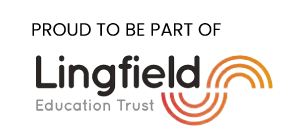At Captain Cook Primary School, we aim to provide a broad and balanced curriculum which enriches the lives of our pupils. We are committed to supporting our children to become confident, enthusiastic learners who are able to work collaboratively with others and have the resilience to overcome challenges. Our goal is to develop the basic attitudes and skills necessary for learning, whilst providing exciting and engaging learning opportunities carefully selected to develop a range of knowledge and skills across all areas of the curriculum. By doing this, we believe we are developing the children’s cultural capital, preparing them for the future and fostering a love of learning.
Children in the Early Years follow the Early Years Foundation Stage Curriculum. We recognise the importance of indoor and outdoor play-based learning in order to develop social, physical and motor skills, and are committed to developing children’s communication skills from the outset by employing a talk-based approach throughout Early Years. By exposing our pupils to a wide range of vocabulary across all learning contexts and by maintaining a focus on reading and discussing quality texts right from the start of their learning journey, we hope to plant the seeds to ensure that our pupils develop a love of reading that will last throughout their education.
As the children move into Key Stage 1 and Key Stage 2, we ensure coverage of the National Curriculum in all subjects. Core subjects (English, maths and science) are carefully planned and sequenced to ensure that prior learning is built upon and all children are supported to make progress. Reading remains at the heart of our school and central to the children’s learning with daily shared or guided reading supplementing English lessons, and teachers reading class novels to the children on a daily basis to further foster a love of reading.
Our foundation subject curriculum is primarily driven by a whole school topic. Each topic has a different foundation subject focus, providing the opportunity for in-depth study, thereby enabling pupils to develop key knowledge and skills in this subject area. Progression is ensured by careful sequencing of learning, enabling key concepts to be revisited and built upon over time. Where possible, we seek to make meaningful links within and across both core and foundation subjects, thereby providing opportunities for the children to build on pre-existing knowledge, deepen their understanding and to apply new learning in a range of contexts.
| Term | Topic Title | Key Subject Focus |
| Autumn | Living in the Past | History |
| Spring | The World Around Us | Geography |
| Summer Term 1 | Let’s Make It! | DT |
| Summer Term 2 | Captain Cook Challenge | Flexible |
We believe that our whole school topic approach fosters in the children an understanding of being part of a learning community. Topic launch assemblies led by subject leads stimulate interest in, and enthusiasm for, the topic. Further enrichment is provided by an opportunity for children to communicate the knowledge they have developed through a Show It challenge at the end of each topic. The Show It challenge provides an exciting, purposeful opportunity for children to demonstrate their knowledge and for teachers to assess the impact of the curriculum.
Other foundation subjects (Art, PE, RE, PSHE, Computing, Music and MFL) are taught discretely throughout the year, and in these subjects, we utilise published curriculum materials to support planning.
Our curriculum is further enhanced by our annual Captain Cook Challenge topic, which takes place in the final weeks of Summer Term. This enables us to keep our curriculum energised, relevant and engaging for the children. Past topics have focused on events of national or international significance and current global causes as a stimulus for learning. Furthermore, this adaptability affords us opportunities to ensure balance in our curriculum and adapt it to our children’s needs by focusing on identified key subject areas or current school priorities. Most importantly, we believe it keeps learning fun, fresh and relevant whilst developing cultural capital in our children, thereby equipping them with the tools they need to become successful citizens of the future.
For further information relating to our curriculum, including full overviews for each subject, please use the subject area links.
If you wish to discuss any aspect of our curriculum, please contact the school office to arrange an appointment with Mrs Acheson, our Curriculum Lead in school. Please note, children cannot be withdrawn from studying the National Curriculum, however there are some exceptions to this in relation to religious and sex education, which can be discussed upon request.



